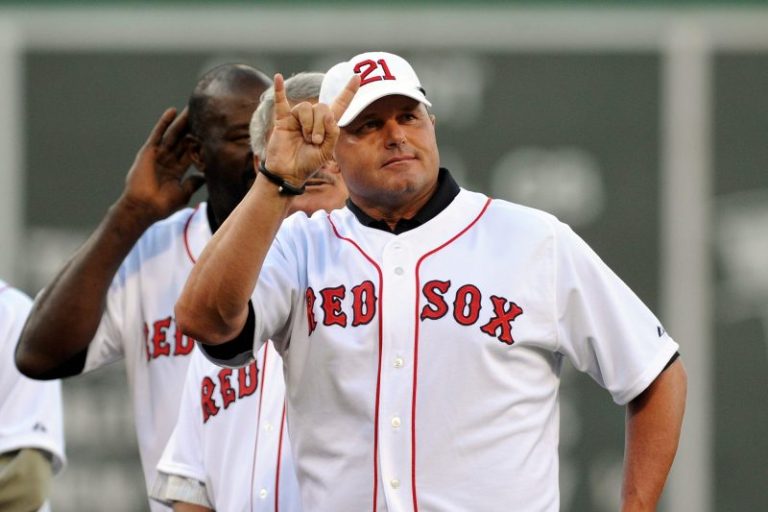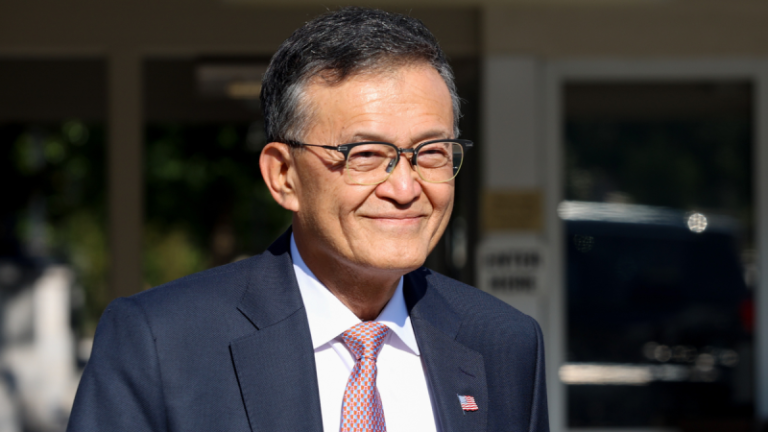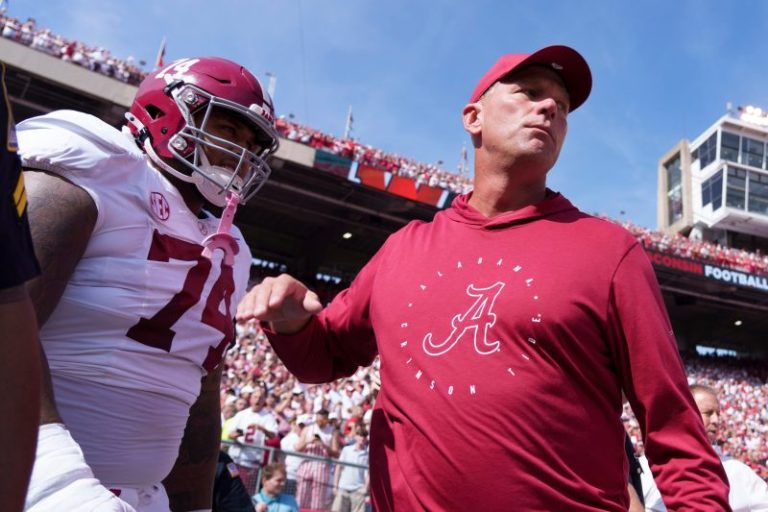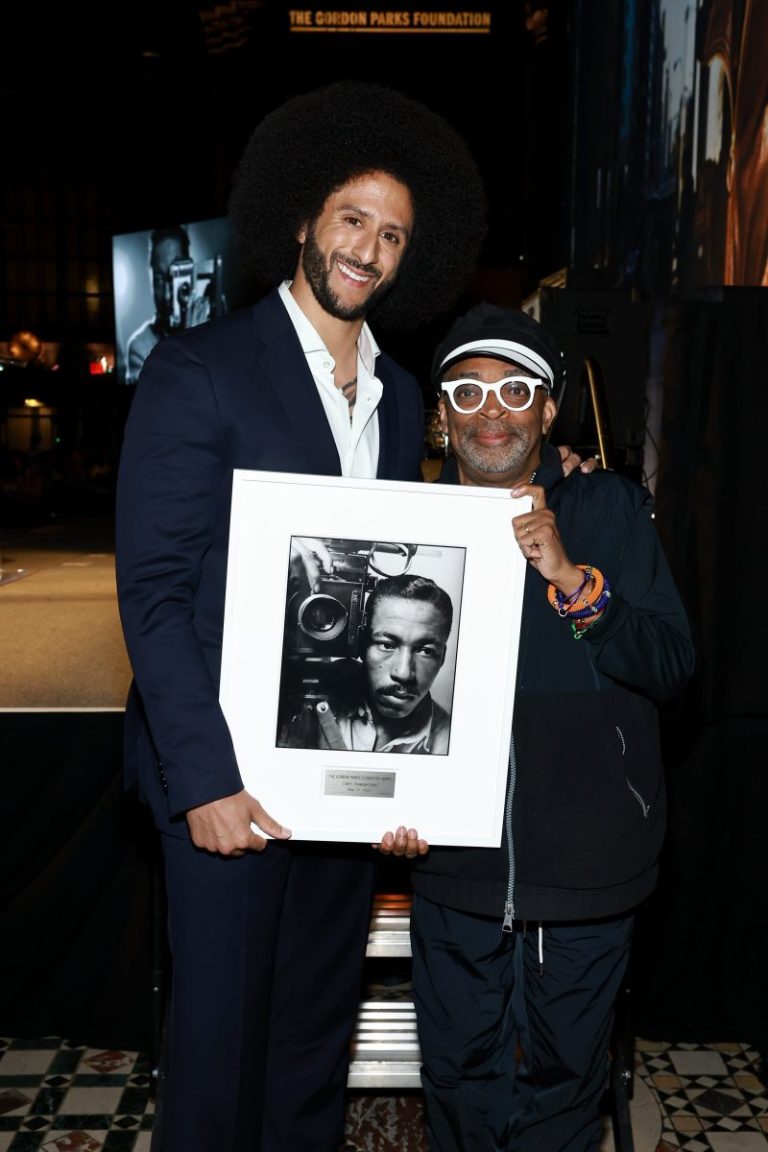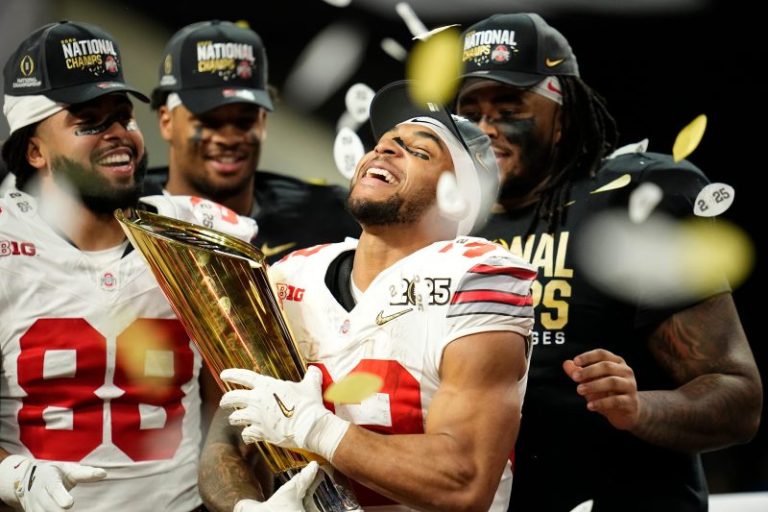These college football program rankings were based on a variety of factors, including traditions, fan base, on-field success and recruiting territory.
Despite being the most recent national championship winners, Ohio State is not rated No. 1.
Some blue blood programs such as Nebraska, Notre Dame, Oklahoma and Texas have gone through title droughts.
My program is better than your program. That’s the start of the quintessential college football argument. And it’s an argument that never really produces an agreement between the sides involved because they are intractable in their positions.
So how do you solve the debate? You bring together the staff at USA TODAY Sports to vote on the best programs and produce a definitive list of the 25 best based on a variety of factors, including traditions, fan base, on-field success and recruiting territory.
How much each of those factors are weighed depends on the mind of those casting ballots. There’s the matter of weighing the historical success of blue blood programs, like Oklahoma, Texas, Notre Dame and Nebraska, that have gone through title droughts. And also programs, like Clemson, LSU and Georgia, that have won multiple titles in the last 20 years.
With enough voters to spread out the highs and lows of both perspectives, we’ve assembled our ranking sure to inspire debate and sure to lead to unresolved disagreements.
1. Alabama
Alabama conveys authority, building an international brand from a home base where college football is a cultural pillar. The two most legendary coaches in the sport’s history, Nick Saban and Bear Bryant, ruled at Alabama. Wallace Wade and Gene Stallings thrived, too, and produced national championship glory. Alabama is a recruiting machine that consistently attracts, then develops, premier talent.
2. Ohio State
The most consistently successful program in college football. Each of the past three permanent head coaches (Tressel, Meyer and Day) have won a national championship. The Buckeyes have won at least 10 games in every non-COVID season since 2005 but one (2011) and have just two losing seasons since 1960. Overall, Ohio State has six national titles, all since 1942.
3. Oklahoma
The Sooners ruled multiple eras – first in the 1950s with Bud Wilkinson and later in the 1970s operating Barry Switzer’s wishbone offense to perfection. Although it hasn’t won a national championship since its seventh in the 2000 season under Bob Stoops, double-digit-win records remain the standard for Oklahoma. Only Southern California has produced more Heisman Trophy winners than the Sooners’ seven. And their poll consistency – third in most No. 1 rankings and overall appearances in the poll – puts them in elite territory.
4. Texas
The Longhorns spent too long in the desert of mediocrity between Mack Brown and Steve Sarkisian, but the glory days were glorious under Darrell Royal, while Texas ruled the Southwest Conference and ripped off national championships. Brown enjoyed an elite run, too, and Sarkisian restored Texas to punching at weight. Sarkisian’s Longhorns, armed with an NIL war chest, enjoy staying power.
5. Michigan
After a 75-year drought, the winningest program in the FBS finally captured an unshared title in 2023 under former coach Jim Harbaugh. Plenty of Michigan’s excellence comes in the earlier days of college football under coaching legends such as Fielding Yost. But the Wolverines have been a fixture from the very beginning, challenging for Big Ten and national supremacy behind some of the most recognized coaches and players in the sport’s history.
6. Georgia
Georgia doesn’t have to live in its past. Bulldogs fans are bearing witness to the program’s glory days. Kirby Smart incorporated the Saban blueprint of elite recruiting and development to provide rocket fuel to a program that consistently performed well, but infrequently ruled. Herschel Walker and Vince Dooley gave Georgia an elite experience. Decades later, they’re in the midst of another.
7. Southern California
There are definitely a few chunks of modern USC history that don’t exactly move the needle, including most of the post-Pete Carroll era. But the Trojans became a powerhouse in the 1920s and have mostly remained an elite national program for the century since, highlighted by the long run at or near the top of the FBS under John McKay and John Robinson and then the nearly unmatched dynasty Carroll built in the 2000s. USC has also developed some of the greatest players in college football history, including a record eight Heisman winners.
8. Notre Dame
In addition to being immortalized on the silver screen and in some of the most memorable writing in sports pages for over a century, the Fighting Irish have produced seven Heisman winners, a slew of All-Americans, and over a dozen claimed national championships. The program has stayed relevant in the modern era while fiercely maintaining its independence, a testament to its staying power and broad name recognition.
9. LSU
LSU fans could teach a master class in elite tailgating, and they’ve had plenty to cheer this millennium, too, with Saban, Les Miles and Ed Orgeron supplying national championships. Since the dawn of the BCS era, only Alabama has captured more national championships than LSU’s three. LSU benefits from being the only Power Four school in a talent-rich state, but it also built a national brand to which it can recruit.
10. Penn State
Penn State had long been a national player but didn’t truly take off as a program under the Rip Engle era (1950-66), which paved the way for the Nittany Lions’ long run under Joe Paterno (1966-2011) as one of the top programs in the sport. Paterno captured a pair of national titles (1982, 1986). Penn State has reclaimed its place among college football’s elite under James Franklin and is one of the preseason favorites entering 2025.
11. Florida
The Gators do not own the history of our top-10 programs, but they became members of the ruling class in the 1990s while program hero Steve Spurrier spurred a revolution. Spurrier produced a national championship and branded The Swamp – and then Urban Meyer and Tim Tebow re-electrified the place with a pair of crowns. Florida’s seven SEC championship game triumphs are second only to Alabama.
12. Florida State
Built from the ground up by legendary coach Bobby Bowden, the Seminoles became even more of a household name after joining the Atlantic Coast Conference in 1992. The Seminoles claims 16 league titles with three national championships as well as a trio of Heisman winners. There’s also the matter of a record 14 consecutive seasons with a finish in the top four of the final poll from 1987-2000.
No. 13 Clemson
The Tigers’ success in the modern playoff era ended a lengthy title drought, but Clemson has been the most decorated program in the ACC for decades. The school now owns 22 outright or shared conference crowns since reclaiming king-of-the-hill status from Florida State thanks to championships in eight of the last 10 seasons.
14. Miami
Thanks in no small part to a reputation for playing fast and loose with the rules both on and off the field, the Hurricanes burst on to the sport’s landscape in the ‘80’s and ‘90’s. Unlike the bunch from Tallahassee, Miami has yet to regain their championship form since joining the ACC but still attracts its share of next-level talent.
15. Oregon
Oregon had hit-or-miss success (mostly miss) as a program until the late 1980s, when former coach Rich Brooks kicked off a run that has established the Ducks as one of college football’s top programs. Oregon has gone 276-103 since 1995, won nine conference titles and twice played for the national title (2010, 2014). The program has also changed college football with unique offensive schemes and, of course, a variety of wild uniform combinations.
16. Tennessee
Tennessee’s rabid fans finally have something to cheer again thanks to Josh Heupel’s program save after the Vols stagnated in a prolonged period of dysfunction since Phillip Fulmer’s heyday. Gen. Robert Neyland put the Vols on the map. Decades later, Tennessee won the first BCS championship. In the fall, they say “It’s football time in Tennessee,” but college football captivates this state no matter the month.
17. Nebraska
Nebraska has fallen on hard times this century but has a lengthy history to support its case for still being counted among college football’s bluebloods. Five-time national champions, the Cornhuskers won at a level unmatched in modern history under two coaches, Bob Devaney (1962-72) and Tom Osborne (1973-97). From 1993-97, the Cornhuskers went 60-3 and won three titles. Since 2002, though, Nebraska has just four 10-win seasons.
18. Auburn
Auburn and its boosters thirst for greatness as the other half of an epic rivalry. Consider, amid a cash-strapping pandemic, Auburn fired a coach who’d never had a losing season and forked over a historic buyout. Less than two years later, it fired another coach. When it’s not firing coaches, it’s enjoyed undefeated seasons and premier performers like Pat Sullivan, Bo Jackson and Cam Newton.
19. Boise State
They’ve only been in the Bowl Subdivision since 1996, but the Broncos have established an identity well beyond their gimmicky blue turf. Boise State has gone to 21 bowls and won 283 games overall since moving up, and after participating in the inaugural 12-team playoff while sending a player to the Heisman ceremony the program is positioned to be among the standard bearers in the next generation.
20. Wisconsin
Wisconsin has been one of the top programs in the Big Ten and FBS since the 1990s, when Barry Alvarez orchestrated an incredible turnaround that has since yielded six conference titles and seven Rose Bowl berths. This has erased what had been an extended run of mediocrity, though there are fears the Badgers are headed for another downturn in a much stronger Big Ten.
21. Texas A&M
Great minds have pondered how the Aggies have not supplied a national championship since 1939. Don’t blame it on a lack of financial, institutional or fan support. The Aggies are steeped in resources within a state that oozes recruiting talent from every corner. Texas A&M needs someone to turn back the clock to the early 1990s, when R.C. Slocum’s Aggies ruled the Southwest Conference and dominated rival Texas.
22. Washington
Gil Dobie put Washington on the map by going 58-0-3 from 1908-16. In more modern times, the Huskies reversed a few decades of mediocrity with the hire of Jim Owens (1957-74) before really popping under Hall of Fame coach Don James (1975-92). James led the Huskies to a 153-57-2 mark complete with the 1991 national title. After another dip, UW returned to college football’s upper crust under former coaches Chris Petersen and Kalen DeBoer.
23. Michigan State
Michigan State was essentially the top program in college football from between 1950-66, with six claimed national titles (1951-52, 1955, 1957, 1965-66) under coaches Biggie Munn (1947-52) and Duffy Daugherty (1954-72). The Spartans returned to national prominence under former coach Mark Dantonio (2007-19), including a College Football Playoff appearance in 2015.
24. Iowa
Like Michigan State, Iowa was a dominant figure in the 1950s and had things run off the rails in the immediate aftermath before being saved by former coach Hayden Fry (1979-98). Fry’s successor, Kirk Ferentz (1999-present), has built a rock-solid identity built around a perennially strong defense that has yielded eight 10-win seasons and a Rose Bowl bid (2015).
25. Utah
It took until the turn of the century for the Utes to become bowl fixtures, but a couple of undefeated campaigns in the aughts and back-to-back Rose Bowl appearances more recently gave the school a presence in the realignment derby. Their fans now hope last year’s 5-7 finish was just a bump in the road as they forge ahead in the Big 12.
This post appeared first on USA TODAY


